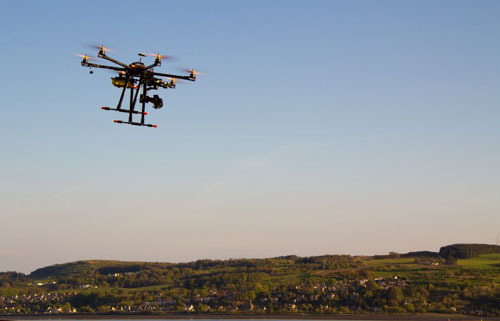UNDERGROUND drones are being used to repair gas pipes for the first time in Scotland – in a bid to cut down on roadwork chaos.
The remote-controlled robots work inside the gas pipes to spot leaks and carry out repairs.
The technology means less road has to be dug up, reducing the need for dreaded contraflows in already congested streets.
The pioneering trial is taking place in Edinburgh’s notoriously congested New Town area and involves inspecting around half a mile of metal pipeline.
The UK’s gas distribution mains are being gradually replaced with plastic but 80,000km kilometres of metal pipes still remain.
The ageing metallic pipes are prone to leaks and require continuous inspection, repair and replacement, resulting in dreaded roadworks.

The underground drones are being used by SGN, a company which used to be known as Scotia Gas Networks and Southern Gas networks.
One main hole in the road is needed to allow the drone into the pipe network.
An operator can watch live pictures fed back from the drone and give the machine detailed orders.
As well as spotting and repairing leaks, the drones can check for strain on pipes and map the pipe network in unprecedented detail, reducing the chance of other utilities accidentally damaging them.
A spokeswoman for SGN said: “We are using innovative robotics technology to carry out maintenance on 600m of gas mains pipe in George Street, Edinburgh.
“We are carrying out maintenance on our gas mains and we’re using technology to do this which is being used for the first time in Scotland.
“Traffic is able to continue to pass our works at both locations and we’re not aware of any disruption in George Street as a result of our work.”
The drones are being made by SGN’s partner ULC Robotics, which also worked on an early version of the system.
The project started after SGN won a 2013 competition run by energy regulator Ofgem, with a bid to develop remote robotic techniques to identify and seal leaking joints in live gas pipes.
A spokesman for the Institute of Advanced Motorists said: “The disruption caused by delays and road closures costs the local economy a significant amount of money, and this new technology will allow business to carry on unhindered.
“The gas industry will enhance its image no end by not having to pull up a road and subsequently repair it again.”
A new study published last month showed Scottish commuters face being stuck in traffic jams for up to 93 hours per year.

